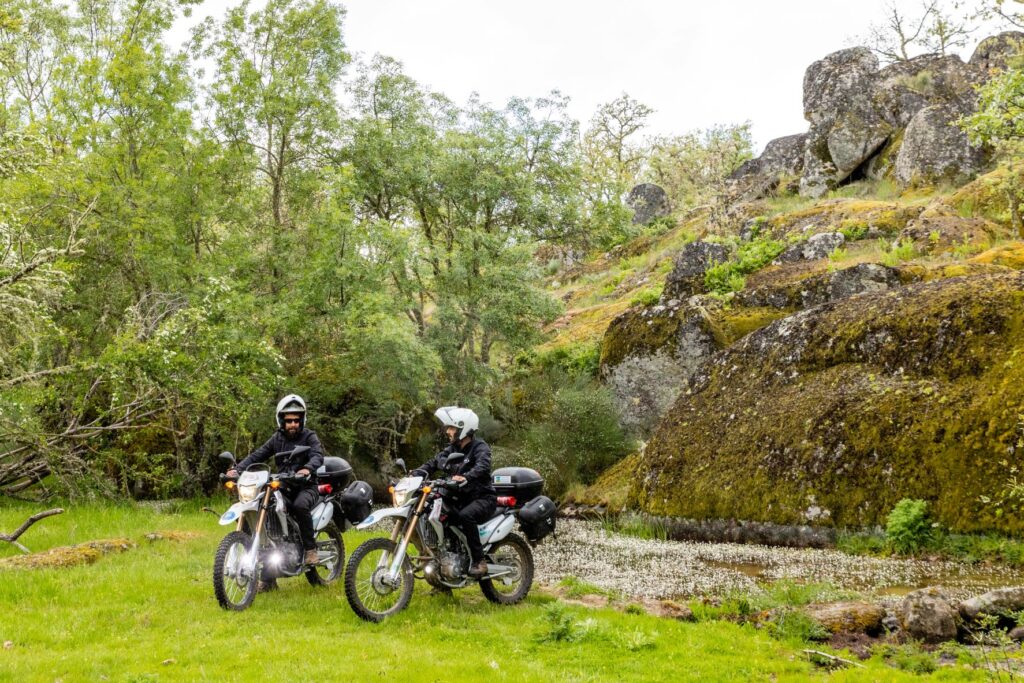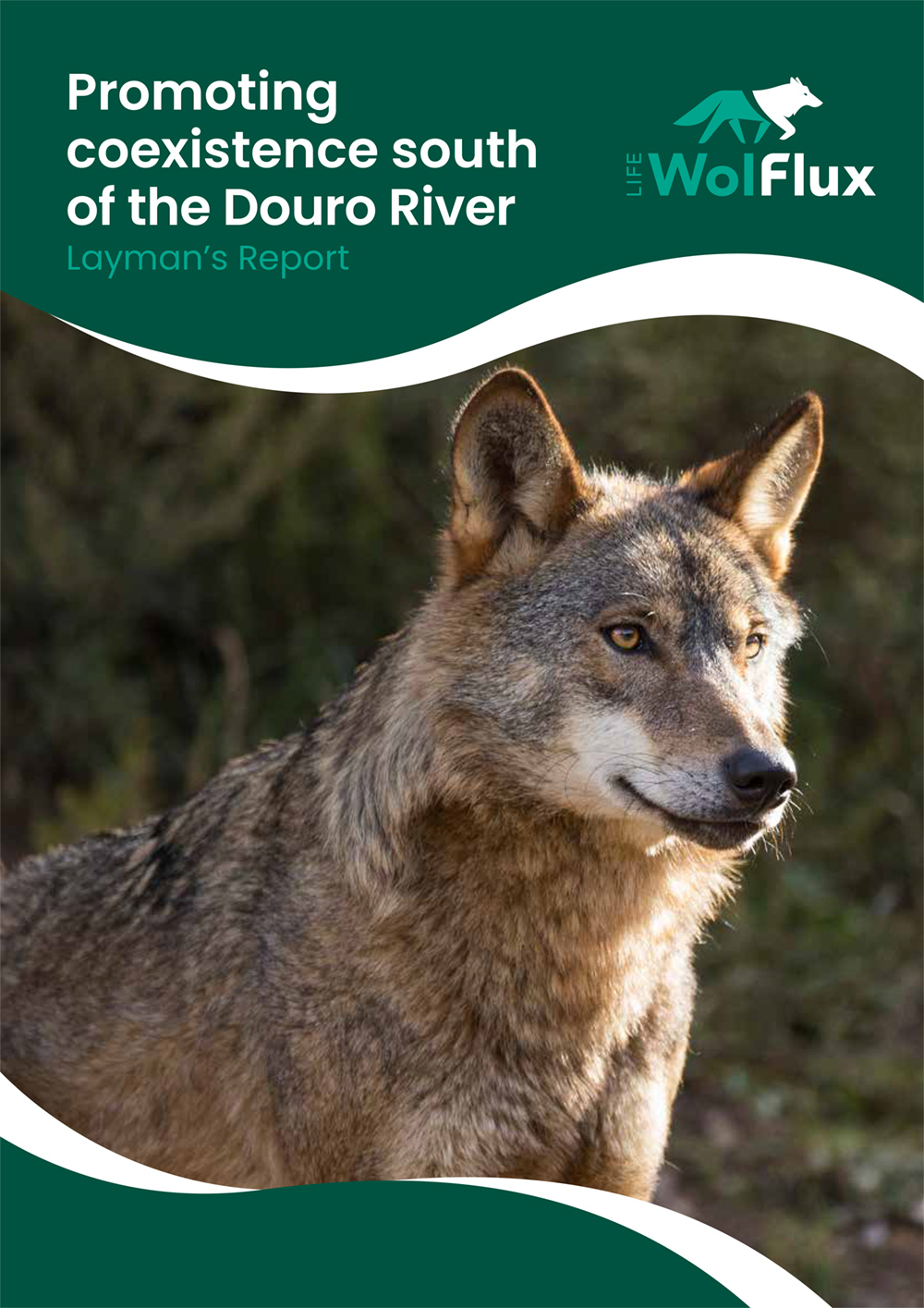Over the past six years, Rewilding Portugal has undertaken a wide range of actions to enable the natural recovery of Iberian wolves south of the Douro River. In collaboration with local partners and supported by the European Commission, the “LIFE WolFlux” initiative has provided a strong foundation for ongoing work aimed at securing a brighter future for this iconic keystone species.
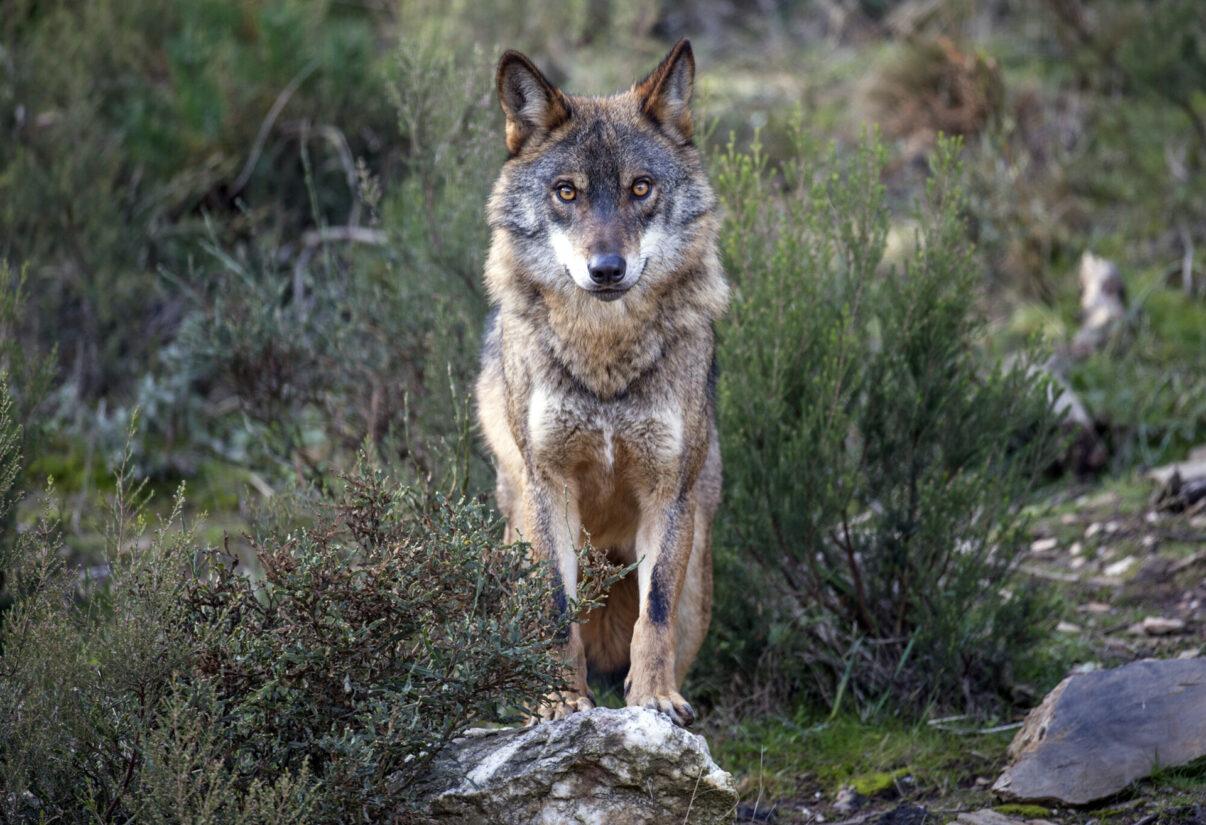
Towards Iberian wolf comeback
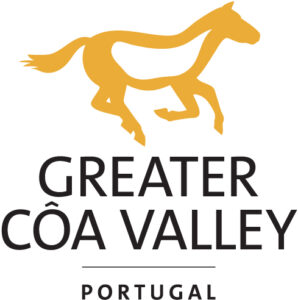 The Iberian wolf is an iconic apex predator which plays a vital role maintaining the health and functionality of wild nature. Once widespread across Portugal, its population has shrunk significantly in size and range due to habitat loss, persecution, and a lack of wild prey. Today, however, efforts to restore landscapes and promote coexistence with people are beginning to yield encouraging results, representing a first step towards enabling Iberian wolf comeback in areas of the country where it is clinging on.
The Iberian wolf is an iconic apex predator which plays a vital role maintaining the health and functionality of wild nature. Once widespread across Portugal, its population has shrunk significantly in size and range due to habitat loss, persecution, and a lack of wild prey. Today, however, efforts to restore landscapes and promote coexistence with people are beginning to yield encouraging results, representing a first step towards enabling Iberian wolf comeback in areas of the country where it is clinging on.
There are currently around 250 to 300 Iberian wolves in Portugal. Most of these are found north of the Douro River, in a relatively stable subpopulation. The remainder, around 14%, are found south of the river. These animals are in a more precarious position, distributed across a handful of scattered, disconnected packs. Some are found within the borders of Rewilding Europe’s Greater Côa Valley rewilding landscape, while others are located to the west. For many years, rewilding efforts focused on supporting these scattered packs have worked to improve connectivity, with the aim of supporting population recovery and genetic exchange with other wolf populations across the border in Spain.
“The Iberian wolf population south of the Douro is one of the most endangered in Europe,” explains Sara Aliácar, Rewilding Portugal’s Head of Conservation. “Enhancing connectivity with other populations in Portugal and Spain is vital to its long-term survival. It is essential that wolves arriving in and living in the area find conditions that encourage them to settle, form packs, and breed.”
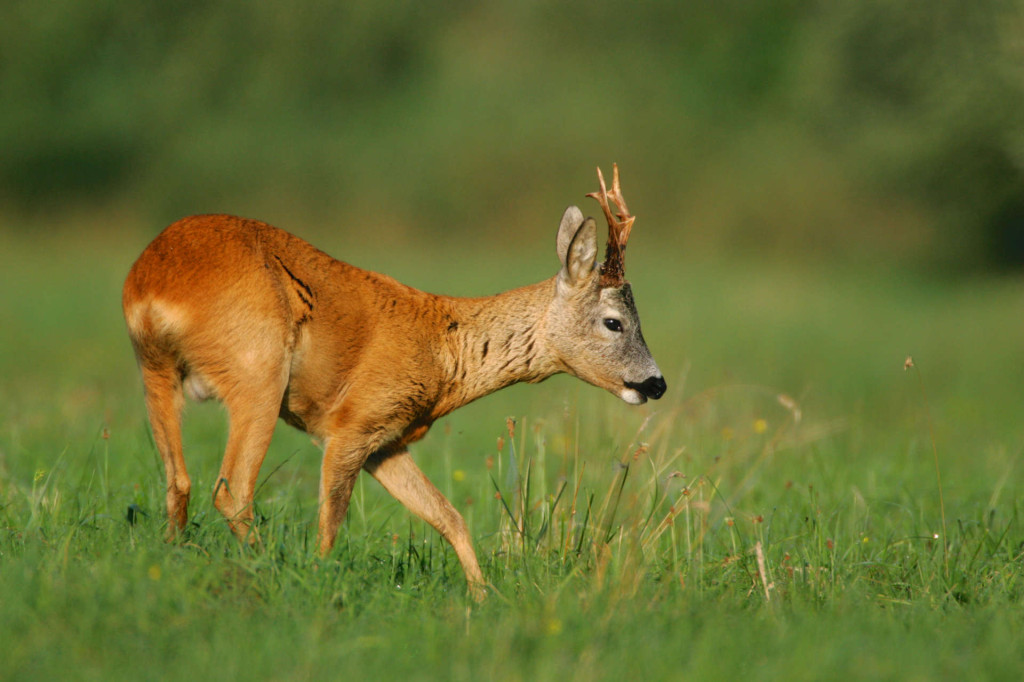
Living with wolves
Over the past six years, the LIFE WolFlux initiative – which was led by Rewilding Portugal, in partnership with Rewilding Europe, the University of Aveiro, Zoo Logical, and ATNatureza/Faia Brava – has taken a wide range of actions to enhance connectivity between Iberian wolf packs south of the Douro. These have focused on promoting human-wolf coexistence and improving the overall ecological health of the landscape.
A lack of natural prey means wolf predation on livestock is a key coexistence challenge. To address this, the Rewilding Portugal team and local partners have provided 108 livestock guardian dogs and 52 wolf-proof fences to local livestock owners, and also taken steps to support the natural comeback of roe deer – a key wild prey species for Iberian wolves. Measures such as the creation of permanent pastures, facilitating the natural regeneration of woodland, and construction of ponds, mean roe deer populations have increased within all the rewilding sites where the Rewilding Portugal team have been carrying out restoration measures – such as Vale Carapito, Paúl de Toirões, and Ermo das Águias.
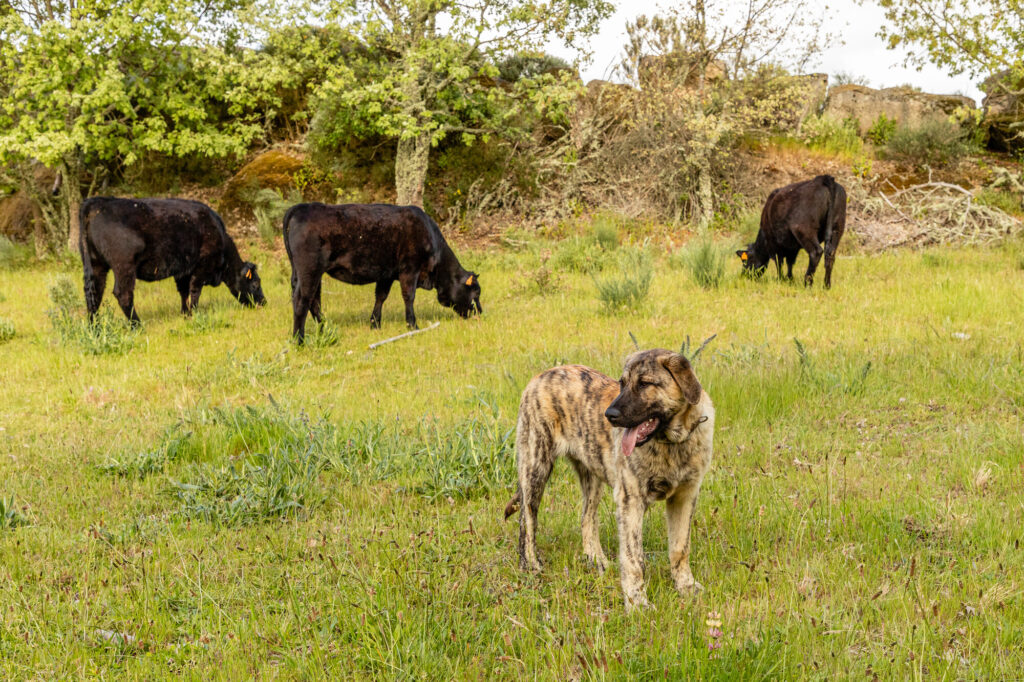
Scientific analysis and stakeholder engagement
Gathering data and stakeholder engagement have also been key measures to better understand the ecological status of Iberian wolves, promote coexistence, and inform future actions and decision-making. An in-depth campaign to promote understanding of the ecological role of wolves was carried out, while interviews were conducted with 117 people from local communities to gauge their opinions about wolves. The results of these interviews showed that many people south of the Douro are open to living alongside Iberian wolves, provided swift compensation payments and damage prevention measures are in place.
Extensive fieldwork saw fresh genetic, distribution, and dietary data collected from all of the relevant wolf packs. This enabled the team to identify coexistence challenge hotspots and map areas with significant potential for wolf recolonisation. A dedicated surveillance team patrolled the area on the lookout for poachers, snares, and wildfires, with 36 snares found and reported to the authorities. Groundwork was also laid to assist the development of wolf-focused nature tourism in the region, with business plans drawn up and implemented by several local enterprises.
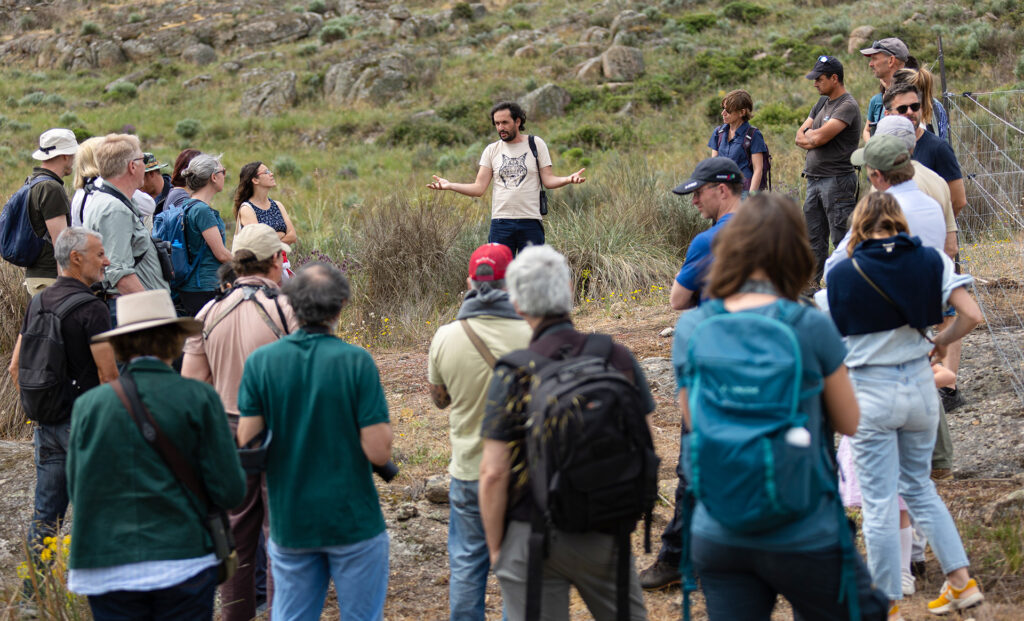
Securing a brighter future
Rewilding efforts focused on the Iberian wolf population south of the Douro have laid the groundwork for further interventions in the landscape, to enable this iconic and ecologically important animal to stage a comeback, and scale up the benefits it delivers to nature and people. Challenges remain, such as a need to further increase the abundance of wild prey, boost funding for damage prevention measures, investigate wildlife crime more effectively, and develop a more streamlined and collaborative compensation scheme for wolf-related damage. The negative impact of motorways on wolf pack connectivity also needs to be assessed and steps taken to mitigate this. And more investment is required to support the development of nature-based economies, with wolf watching a key attraction for wildlife enthusiasts. This would enable local communities living alongside wolves to benefit economically from their presence.
With more work required to secure a brighter future for Iberian wolves south of the Douro, a new bilingual report has called for bolder action to enhance coexistence between people and Iberian wolves. At the heart of this lies a need for deeper collaboration, compromise, and engagement between authorities, conservation NGOs, farmers, farming associations, and communities.
“LIFE WolFlux has achieved important milestones by increasing the use of damage prevention measures, adding value to products that come from farmers that coexist with wolves, and supporting the comeback of wild prey,” says Sara Aliácar. “To continue the progress that has been made and significantly improve the fragile situation of the Iberian wolf south of the Douro, further efforts and increased collaboration are necessary. We will continue to push for these.”
Scaling up
Rewilding is a long-term process and efforts to support Iberian wolf comeback south of the Douro are continuing and scaling up. The LIFE LUPI LYNX initiative, which was launched in January 2024, is a cross-border, multi-partner collaboration that is now building on the achievements of LIFE WolFlux to boost the recovery of the Iberian wolf and Iberian lynx in the Beira Interior region of Portugal, as well as the province of Cáceres in Spain’s Extremadura region.
The LIFE WolFlux initiative was financed by the LIFE Programme of the European Union and co-financed by the Endangered Landscapes & Seascapes Programme, which is managed by the Cambridge Conservation Initiative and funded by Arcadia, a charitable fund of Peter Baldwin and Lisbet Rausing.
